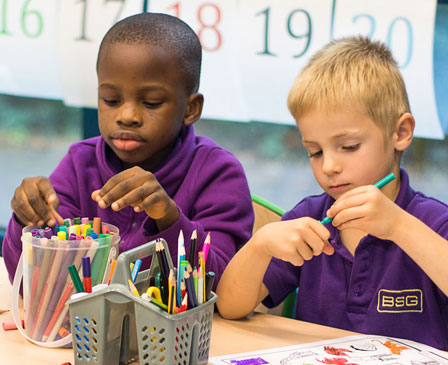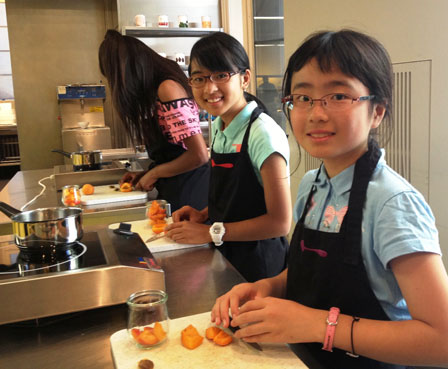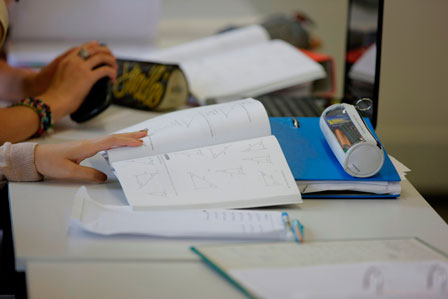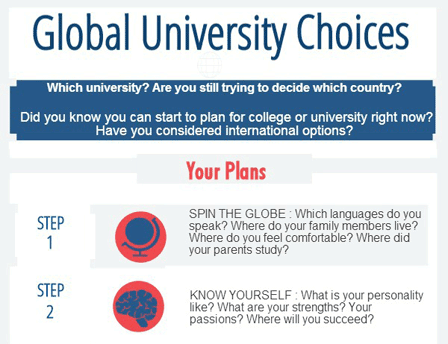Below you will find a selection of the most recent entries from bloggers in our Education section.
To view the entries from individual bloggers, click on the links below:
- Local Teacher Bloggers
Instead of asking teachers or staff from one particular school in the area, we've decided to host all of them under one heading. We expect great things to happen on this page, so make sure to check often to read their stories, insights, explanations, and thoughts on education for children, adults, special needs, or extra-curricular.
- Philippa Dobree-Carey is an adept project manager for an international organization in Geneva. Author of the award-winning student guide "From High School to Uni", Philippa successfully steers students step-by-step through the process of packing, preparing for and thriving in the university environment. This firsthand perspective has driven her to create a library of well-defined, pragmatic resources aimed at facilitating the transition to university life. Discover a treasure trove of invaluable resources by visiting her website www.fromhighschooltouni.com.
- Trudi Hayes
She is the Director of Swiss Language Group in Geneva, which comprises of three schools. Wall Street English, Swiss French School and Ecole Suisse d’Allemand. Trudi has a background in client relationship and service management and is a qualified English teacher. She and her team of language consultants help students find the best language courses for them, according to their individual objectives and requirements.
- Sandra Steiger
TutorsPlus Academic support manager, Sandra and has over 10 years’ experience teaching English at various schools in Switzerland. During her 6 years at the International School of Geneva, she was also the Service Learning programme Coordinator, Homeroom Mentor and Head of Year 8. Now she helps parents and students get the academic support they need.
- Sarah Frei
Head of Marketing and Communication at Brillantmont International School, Sarah is excited by the opportunities created by technology not only to communicate with the multicultural, far-flung school community but also to share knowledge and experiences about educational practice.
- Sabine Hutcheson
Sabine Hutcheson is a British-trained school teacher, with over a decade’s teaching experience in Switzerland, UK and neighbouring France. She has taught a variety of subjects to children from 5 to 18 years old, as well as to adults. After working as an Educational Consultant at TutorsPlus, Sabine is now Head of Sixth Form at the British School of Geneva.

By Sabine Hutcheson, Education Consultant at TutorsPlus
Earlier this year the Economist Intelligence Unit compiled a report for Pearson which showed the UK coming into the top 10 education systems in the world. This is a much better score than last year’s PISA report which can be partly explained by the fact that Pearson looked at the rate of students continuing into higher education; a mere detail perhaps but a significant one. This poses the question of an education system’s raison d’être. If we explore this issue, the English curriculum, on offer in many private schools in the Switzerland, certainly ticks all the boxes.
The English curriculum does not grade students in the same way they are graded in Swiss or French schools. It is based on a set of competences that each individual child acquires throughout their education. These translate into levels. At the end of primary school some children may have ideally reached a level 5, while others are at level 3. The levels pertain to a child’s acquired skills in literacy and numeracy. Because students are rated against their own progress and achievements, as opposed to a benchmark or their peers, they move on unhindered until the age of 14. At this point, they will be guided to a choice of qualifications suitable for their academic level and/or vocational aspirations, most of which can lead to university.

By Sarah Frei, Brillantmont International School
The sun is shining and it’s that time of year when we’re all thinking ahead to the long awaited summer holidays, daydreaming of a break in the routine, whether in colder or warmer climes.
Swiss Public schools break for summer in the next couple of weeks, but children in private schools, may already be on holiday. This means a break of anything between 7 to 12 weeks, depending on the kind of school they attend.
Some would argue that having worked hard all year and in some cases prepared successfully for examinations, children deserve to spend their holiday weeks lounging around. Of course, we all need some rest and relaxation, but there’s no reason why the summer holidays should mean switching off completely. Let’s not forget too, that many working parents may have limited or no holidays so they put their childcare juggling skills to the test!

Here we are, the last stretch before the dreaded final exams. You have worked hard (hopefully) for the last two years and now your efforts are going to pay off. Many of you students out there will be given study leave to revise for your exams, but how should you organise yourself efficiently in order to maximise your time and performance?
First of all, let us understand that no amount of last minute revision will replace consistent work over the entire course. Having said that, if you haven’t felt confident so far or feel that you are ready to tackle those tricky bits, it isn’t too late to put some of it right. Last minute stage frights are good as they give you the boost of energy you need to make it through the final 3 months. The key is mainly organisation. For each subject, list the topics you need to cover and then for each topic, list the sub-topic. This will be enough to get you started as you will have broken down what you need to cover into small, manageable chunks. This also makes it easier to find and work examples for each subtopic. For example, in Physics, lay out the formulae and expand them to show how they connect to each concept, emphasising similarities and differences of when they are applicable. To make sure you have understood how and why to use a particular formula, introduce one change in the example and see how this affects the equation. In History, it can be a list of key events, in which case you could draw a diagram of how they are connected, then use this information to answer a practice question, using 1 or 2 sources for reference.

By Sarah Frei, Brillantmont International School
With examinations looming on the horizon, many students are looking ahead, considering the next stage in their academic life. Many of the international curricula offered in Swiss private schools provide an element of choice with regard to subject combinations and therein lies the difficulty. If you’re agonising over which course to choose, here are a few things to keep in mind:
Choose subjects you enjoy
Maybe your Dad is an incredible mathematician whilst mum’s a talented biologist. You want to keep them both happy,but what you really enjoy is history and languages. In that case, go for it! For the next two years, you‘ll be devoting a lot of energy and possibly a few sleepless nights to the subjects you choose, so the least you should do is like them! Choosing subjects to please others risks leaving you frustrated, unhappy and quite simply, out of your depth. Similarly, don’t choose a subject just because your best friend has chosen it !

By Denise Nickerson, Educational Consultant
Are you a parent of a teenager or a high school student? Do you find the thought of applying to universities stressful? It shouldn't be! It can be an exciting and fun experience for your whole family. If you are an international person, knowing how to begin the process is the key. How do you create a reasonable list of universities from literally thousands of global choices? What are the first steps? Some families decide on a country first, others let ambition guide them. I suggest a long first list, including many options that can be investigated - if you have the luxury of time. This info-graphic is designed to help you narrow down your choices without limiting yourself. You will find some tips about circumstantial parameters that ultimately make the choice easier. Enjoy, and give me a call if you'd like more guidance on the way to the right choice for you.
Click on the image if you would like to see a larger version.









